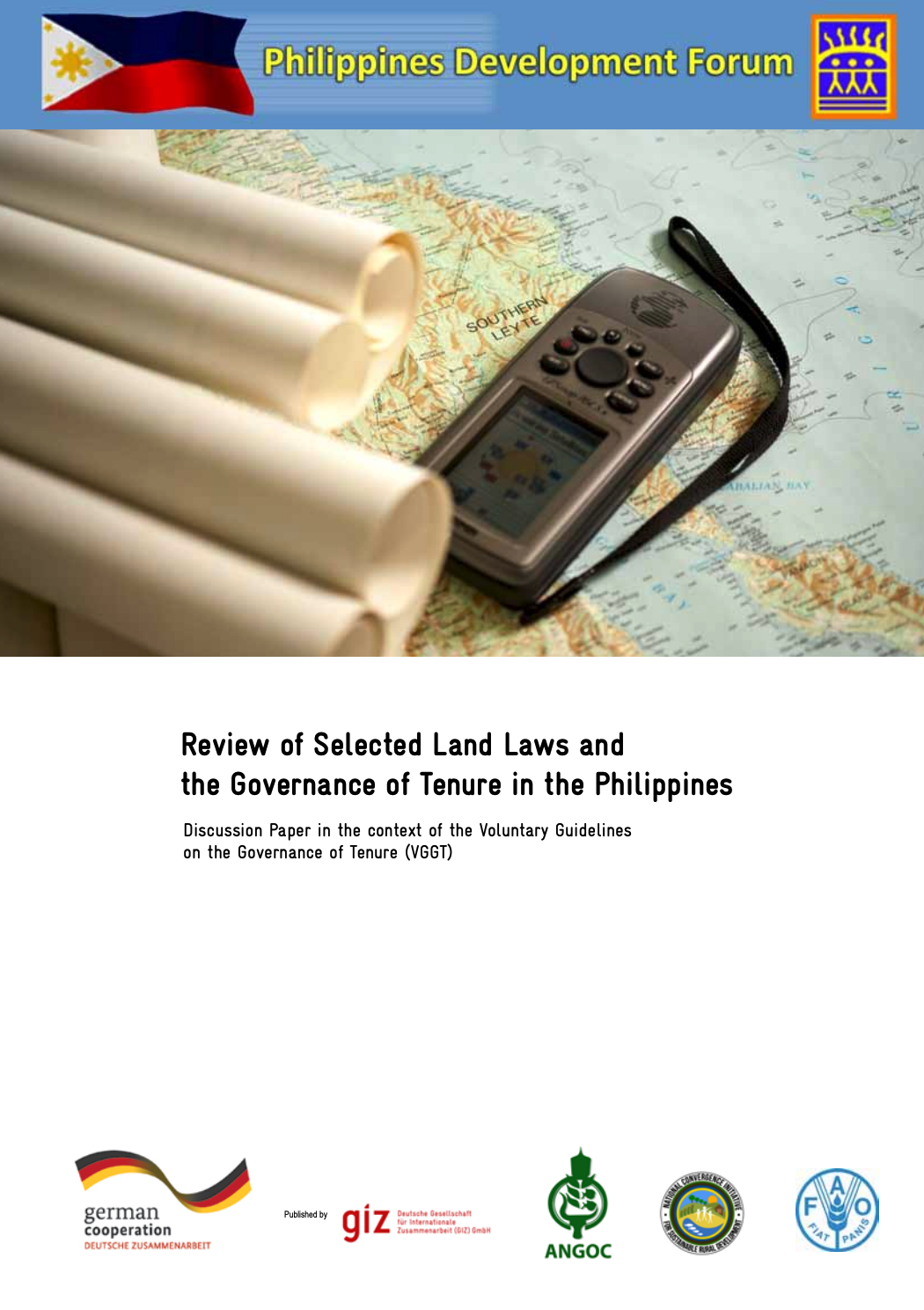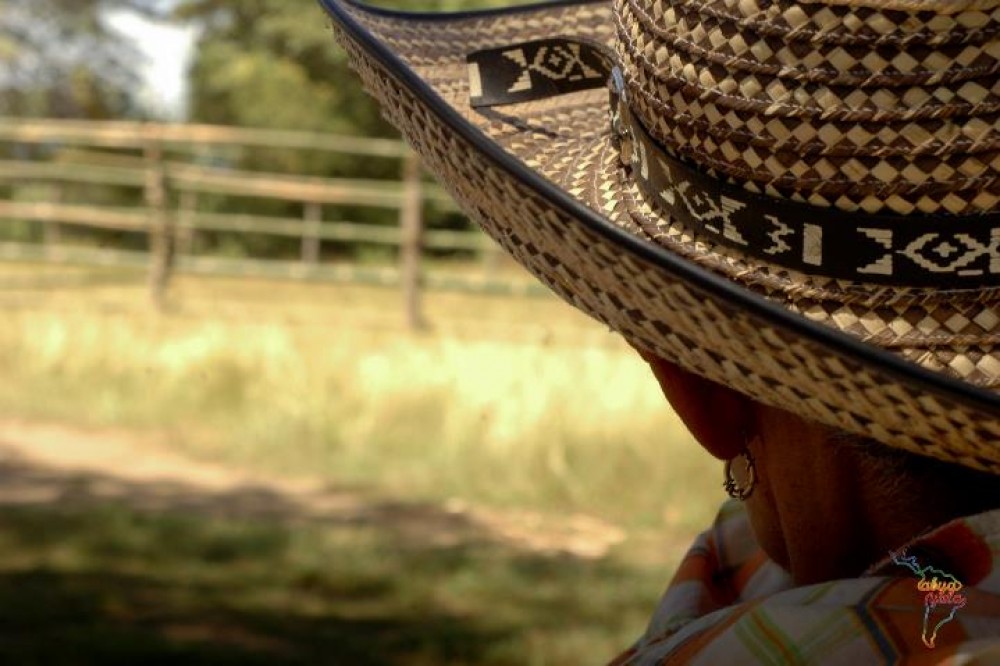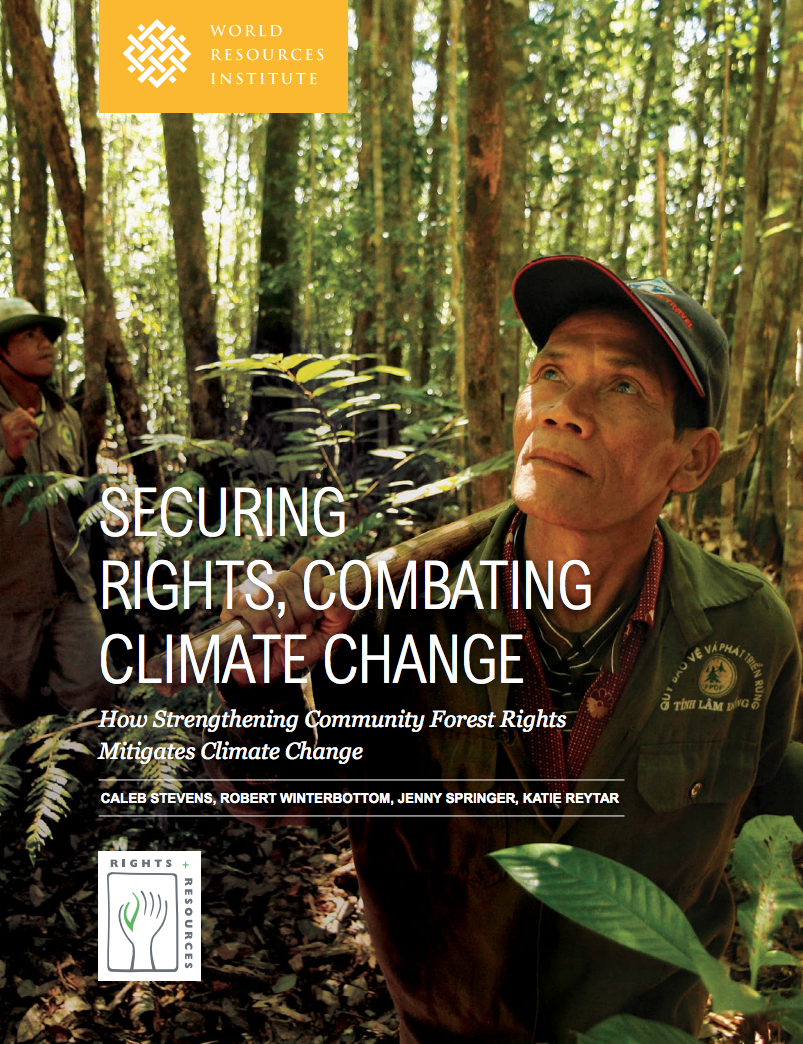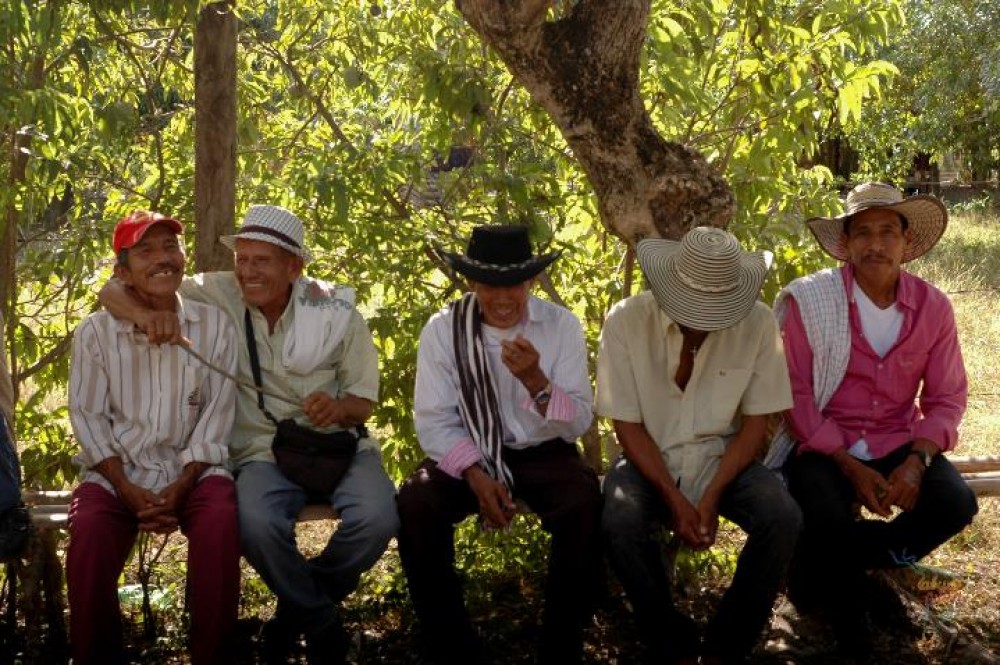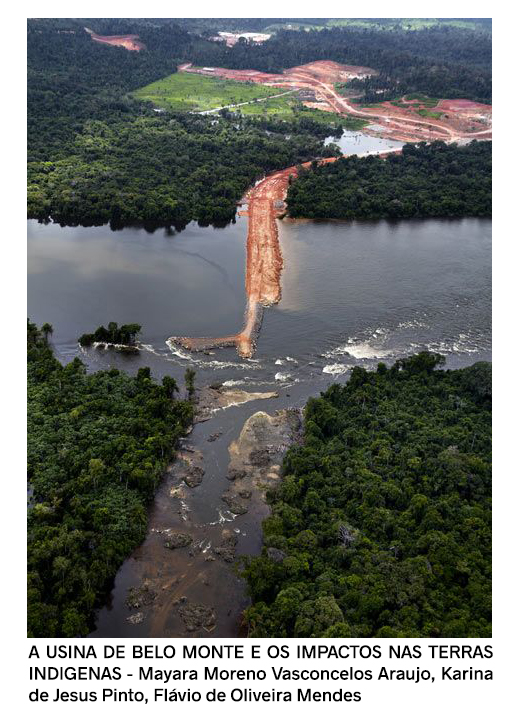Review of Selected Land Laws and the Governance of Tenure in the Philippines
The Voluntary Guidelines on Responsible Governance of Tenure of Land, Fisheries and Forests in the Context of National Food Security (VGGT), was developed under the Committee on World Food Security as a result of collaboration among different groups of stakeholders – governments, civil society, private sector, academia. The VGGT is intended to provide a framework for responsible tenure governance that supports food security, poverty alleviation, sustainable resource use and environmental protection.

